Firstly, for those who have been trying to book Medieval Canterbury Weekend 2022 tickets this week an apology because I have been informed that due to government changes, the CCCU online Box Office has been unable to take your payments. Kellie in the Box Office has been doing a sterling job of booking tickets for people over the phone and she believes CCCU’s Finance Department will hopefully be able to update the settings soon, so please bear with us!
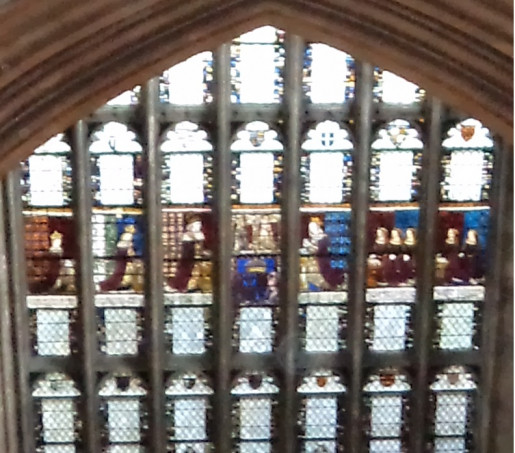
I thought I would also mention that the Canterbury Maps and Mapmaking: Imagining and Re-Imagining the City will be coming up in a couple of weeks on Saturday 26 March in Old Sessions House on the CCCU campus and at Canterbury Cathedral Archives. As mentioned previously, the study day aims to provide a range of new perspectives on Canterbury that will establish its identity as a centre of cartography and offer fresh insights into the wider significance of the city’s role in the history of maps and mapmaking. Among the speakers are Professor Paul Bennett, Dr Avril Leach and Professor Gordana Fontana-Giusti. Those attending will get a chance to see a special exhibition in the Cathedral Archives.
If this looks of interest, tickets are available: £25 (£15 for students) which includes refreshments, lunch, and visit to Canterbury Cathedral Archives. To register and for more details, go to: https://www.canterbury.ac.uk/science-engineering-and-social-sciences/events/canterbury-maps-and-mapmaking.aspx or contact Dr Alex Kent at Canterbury Christ Church University at alexander.kent@canterbury.ac.uk .
Please keep this date free for the Annual Becket Lecture that in 2022 will take place on Tuesday 10 May. Title to be confirmed but we are delighted to be welcoming Professor Miri Rubin from Queen Mary University of London. As an eminent scholar in medieval and early modern studies, Professor Rubin’s extensive research ranges across the period 1100 to 1600, through the exploration of themes in the religious culture of Europe. She is interested in inter-disciplinary encounters, and these have animated her work. Furthermore, she also enjoys disseminating history to diverse audiences all over the world and we are very fortunate that she will be coming to Canterbury.
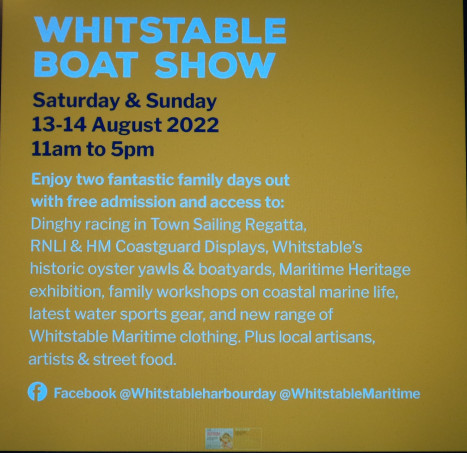
Keeping with the idea of advance publicity, Dr Martin Watts has asked me to include a notice about the Whitstable Boat Show 2022. As he says, CKHH is pleased to confirm that it is the academic partner to the Whitstable Boat Show, which runs this year on Saturday 13 and Sunday 14 August. Among the attractions, Whitstable Maritime is hosting an exhibition entitled ‘Whitstable – Our Living Maritime Heritage’ in Whitstable Yacht Club throughout both days, and our own Dr Martin Watts has been assisting with the preparation, research and collection of exhibits reflecting the fishing, shipbuilding and yachting heritage of the town. This has involved the tracing of Whitstable built craft and surviving artefacts from all over the United Kingdom, and the collation of family histories associated with the industrial and maritime history of the town. By inviting the public to bring along their own artefacts and mementos to the exhibition, CKHH and Whitstable Maritime will be offering advice and information, and will collate the information gathered with a view to publication later in the year. Please see the poster to get an idea of the scope of this event.
Additionally, Dr Diane Heath has been in preliminary discussions with others from across the university who took part in a Climate Emergency Research Sandpit last Friday. As a result, their team is putting together a ‘Deep Education and Community Level Activism’ project funding plan which will include a ‘green dragon’ to be planted somewhere on campus. Consequently, Diane is exceedingly excited and has been in contact this week with John Hills from Sustainability.
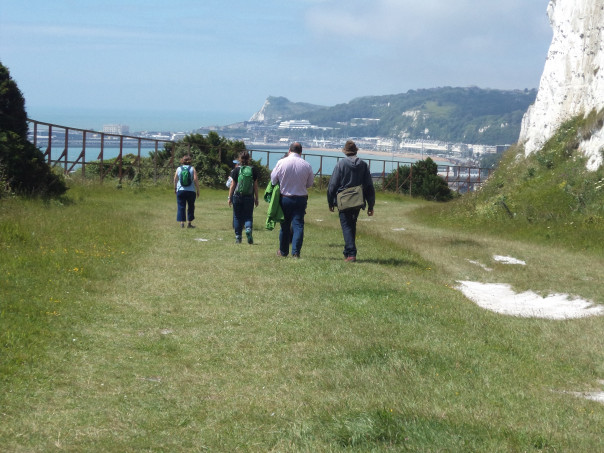
Dr Claire Bartram has been busy, too, and she is currently organising and collating CCCU’s IHR Centenary Dover Project for the launch next month on Saturday 23 April, which coincides with the University of Kent’s IHR Centenary History Festival. CKHH will be collaborating with Kent for their History Festival, contributing a talk and stall that draws on research concerning medieval Canterbury and the new funded Kent’s Maritime Communities project, as well as family-friendly activities from Diane’s and Penny Bernard’s funded ‘Medieval Animals Heritage’ project.
Just to add a little extra, I had a group of King’s School Classics students looking at medieval documents in Canterbury Cathedral Archives this week. Such events offer excellent opportunities to introduce young people to the world of archives and the value of exploring primary sources while still at school. Consequently, I hope they will remember the late 14th-century hairy chamberlains’ accounts of Canterbury city, Alice’s gift in 1200 of rent from her late father’s and uncle’s tenements that were now hers to St Thomas’ Hospital in central Canterbury, and just how meticulous the Christ Church Priory manorial serjeant was in 1300 about recording the state of the livestock right down to the fate of the manor’s debilitated bull and how many chicks had been born that year. For such records allowed us to discuss Canterbury civic authorities’ response to the destruction of documents in 1381 by the rebels, the roles women could take on as landholders in their own right due to the opportunities presented by customary law compared to their far more limited rights under common law, and the relative value of being able to read and write in Latin and vernacular languages, the group agreeing reading was the more useful option.
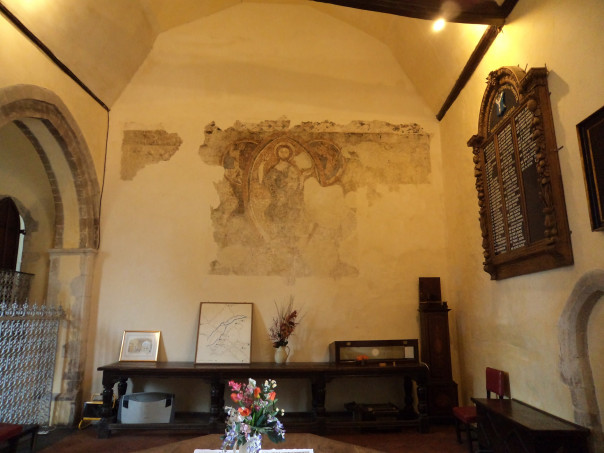
This week was also a meeting of the Kent History Postgraduates and even though quite a lot were working and couldn’t attend while other were away researching, five were able to attend from history and archaeology. Consequently, we decided to use the time to start thinking about different ways to communicate both with other postgraduates in Humanities and perhaps members of staff. This was sparked by an initiative in Archaeology involving monthly meetings of staff and students as a research community. They have now met once and are keen to build on the group’s initial enthusiasm. Others felt it was difficult to get to know people because there doesn’t seem to be a central point of information, a kind of virtual notice board that anyone can post on. There was also a feeling that having been online for the last two years, it is perhaps getting time that we switched back to some meetings in person, or at the very least a hybrid system. This will be the primary discussion topic next time before having a break for Easter as we start to map out how to proceed.
Another topic that came up was how the group might seek to make more contact with their peers at the University of Kent, especially how CCCU postgraduates might again contribute to Kent’s MEMS Fest, a collaboration that has been successful in the past as Janet and Jane were able to vouch for. Another aspect of such collective working has been ‘Picture this …’ and, as well as bringing together postgraduates from the two universities, this has the potential to introduce Rochester Cathedral Library into the mix with the far more established connection to Canterbury Cathedral Library.
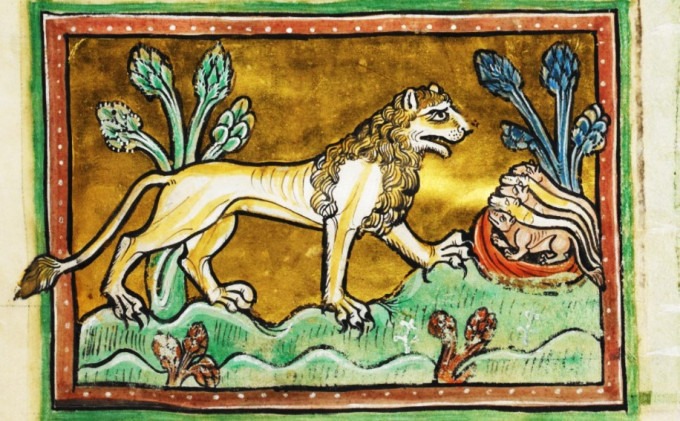
Furthermore, there was some discussion about the possibility of creating even a limited link to the many local history societies in Kent which are affiliated to the Kent Archaeological Society. This was thought to be especially pertinent because the next KAS Local History Societies Forum is due to take place online this coming Saturday. Having led the first of these a year ago, it well be interesting to hear how societies have coped with reduced access to archives and the issues surrounding doing everything online.
Finally, and more detail on this next week, I’ll be at two Lossenham Project meetings over the next week. There are plenty of exciting developments due to take place over the next six months for both documentary historians and fieldwork archaeologists, so again watch this space. In addition, for those more interested in historical geography, the CKHH can offer postgraduate opportunities with at least some funding for landscape history projects – do contact me if this is something you might be interested in doing at: sheila.sweetinburgh@canterbury.ac.uk for further details.
 Centre for Kent History and Heritage
Centre for Kent History and Heritage Sheila Sweetinburgh
Sheila Sweetinburgh 1610
1610

